Poet Vievee Francis Poises Her Work Between Nature and Civilization
| Published: 05-27-2017 4:21 PM |
S
“Their slow heaviness,” she said, over baklava, “stills me.”
Francis, a poet and associate professor of creative writing at Dartmouth, tends to speak in rather slow, deliberate sentences herself, her clauses punctuated with seconds of thought. But beneath the silence, wheels turn.
“I was just talking with my husband.” Pause. “About ideas around sublimity.” Pause. “How even the beauty of the sublime carries all the terror of all that’s magnificent.” Pause. “And, at the same time, challenges it.”
After the train heaved out of sight, Francis kept gazing out the window.
“There were things I felt in the (Blue Ridge) mountains that I feel even now, looking out at these mountains,” she said. “Living in the upper part of that same Appalachian chain, I’ve been thinking about nature and my place in it more than ever.”
Pause.
“I don’t know where that place is yet. But I feel that same love and fear of the vista.”
Article continues after...
Yesterday's Most Read Articles
 Starbucks store planned for Route 120 at Centerra
Starbucks store planned for Route 120 at Centerra
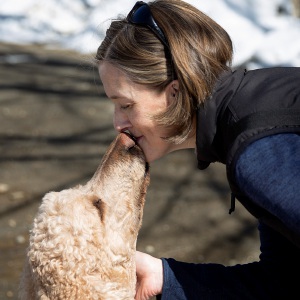 Enterprise: Upper Valley pet sitters discuss business growth, needs
Enterprise: Upper Valley pet sitters discuss business growth, needs
 A Life: Priscilla Sears ‘was bold enough to be very demanding’
A Life: Priscilla Sears ‘was bold enough to be very demanding’
 2024 Upper Valley high school baseball guide
2024 Upper Valley high school baseball guide
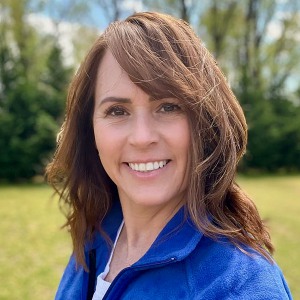 Canaan Elementary School has new principal
Canaan Elementary School has new principal
Her love-versus-fear of what nature, but also humankind, can do creates the tension at the heart of her third and latest poetry collection, Forest Primeval, titled after the first line in Henry Wadsworth Longfellow’s epic poem, Evangeline: A Tale of Acadie.
Earlier this year, Forest Primeval won the prestigious Kingsley Tufts Poetry Award, one of the most coveted accolades for mid-career poets, in no small part for its dizzying $100,000 prize, which has more zeroes than poets are accustomed to dealing with. It also received the 2016 Hurston/Wright Legacy Award, named in honor of Zora Neale Hurston and Richard Wright, two of the most influential American writers of the 20th century.
The collection explores what Francis calls the “anti-pastoral,” meaning it pushes back against the notion that nature is all hay bales and rosy sunsets and fields of Wordsworthian daffodils. It’s also a notion that she acknowledges as existing even in her own mind: “I hate this measure of memory, the constant return to the creek, the field, the sundering South,” she writes. “I want release from the pasture of my youth, from its cows and cobs in the mouth.”
These poems were her response to relocating to the Blue Ridge Mountains of western North Carolina from Detroit, a move that ushered in the realization that the natural world can be breathtaking, yes, but also breathtakingly violent, even cruel.
So, too, can the human world, though the human world is much more temporary, and subject to inevitable reclamation by nature. In spare but vivid language, Francis considers the lineage of what was here before us, and what will remain after we are gone: “When I am forgotten,” she writes, “the valley floor will be the valley floor. Smoke will rise from the limbs without me. Without me.”
By imagining a space where the speakers of her poems both exist and do not, Forest Primeval makes the case that the natural and human realms should not be — perhaps cannot be — treated as separate. We are bound to, and moored between, both.
Among the places Francis is bound to is rural Texas, where her family has roots going back to the 19th century. Growing up, she alternated between the broad flat heat of West Texas and the dense piney forests in the eastern part of the state, where her grandmother had a farm.
She looks back on her connection to nature, then, as instinctual and authentic, unfettered by an academic frame of thought.
“I didn’t really consider it. I just wanted to be outside and play with the animals,” she recalled. “I just wanted to squeeze the rabbits and run after the hound dogs and see if I could make a lowing sound to get the calves to come talk to me.”
She said it was not until years later that she understood what it meant to a black body on a farm in the Deep South; about her grandmother, she writes, “The toil took its toll, and though her face barely wrinkled, her knees and elbows darkened into the skin I wear now … I want to forget, but I have my mirrors. And there she is, shadowed, in a sunstruck field.”
For Francis, poetry is a means of situating herself not just in place but also in time, amidst the ongoing legacy of violence against women and black people in America. Poetry is also a mouthpiece, a way to make herself seen and heard in a world that would silence and erase her.
“The role of poetry, for me, is this: If something were to happen to me, and there was a chalk outline of my body on the road, people would know who I am,” she said. “It’s hard to harm someone you know. It’s easy to harm someone you choose not to know.”
Pause.
“Reading my work makes it impossible not to know me.”
Cleopatra Mathis, poet and retired director of the creative writing program at Dartmouth, said even just exchanging words with Francis makes it impossible not to know her.
“One is not to be fooled by her sometimes demure and sweet way of conducting herself in the world,” Mathis said. “You only need to talk to her for a few minutes to come away with the realization that she’s an incredibly insightful, perceptive person. She just sees everything in the room.”
Francis has a way of channeling her observations into unexpected, often subversive, revelations in her poetry, Mathis said.
“I find her poems really surprising in where they take you and where they go,” Mathis said. “And I find her ability to often sidestep the direct, personal narrative, and yet still write almost uncannily from the heart, something that’s really difficult to do well. And she does it very well.”
After meeting Francis at a summer conference at the Frost Place in Franconia, Mathis encouraged other members of Dartmouth’s creative writing department to get to know Francis, too.
“They all saw immediately that it was a no-brainer to try to hire her,” she said.
Mathis, who is also from the Deep South — in fact, she grew up less than 100 miles from where Francis’ family lived — felt an immediate kinship with Francis when they first met that summer in Franconia six or seven years ago, she said.
“I feel like a lot of what is deeply present in her voice and her subject matter is intrinsically linked to that background in rural Texas,” Mathis said. “You can’t be a Southern writer living in the north and not be full of ambivalence and contradictions.”
Francis moved north, and into that territory of contradictions, when she headed to Detroit at age 18. She started writing poetry at 19 after discovering the late poet Ai, who wrote persona poems through unexpected points of view, such as that of a child beater.
“I didn’t know people could write poetry like that,” she recalled. Tentatively, she started penning her own poems, “but I really didn’t understand myself or proclaim myself as a writer until I was 24.”
She’s 53 now, and finds that the years have given her permission to be braver than when she first started.
“I don’t do the comparing, now, that many writers do early on. I just get inspired. I get, oh, just really happy and strange, you know?” She actually giggled when she said this.
Francis is self-taught; she eventually went on to receive an M.F.A. in poetry from the University of Michigan at Ann Arbor, but that wasn’t until 2009. By then, she had already received a Rona Jaffe Foundation Writers’ Award and a fellowship from the Cave Canem Foundation, and had published her first poetry collection, Blue-Tail Fly, so named for the antebellum song about the insect that causes a horse to buck off its master.
While living in Detroit, she met and married her husband, fellow poet and Dartmouth lecturer Matthew Olzmann. Despite some peoples’ assumptions, their love is not competitive, she said, but rather built on a mutual understanding of what it means to have ink running through one’s veins.
“When I wake up at 2 a.m. and I need to write, he doesn’t try to stop me,” she said. “If I’m spending a lot of time in my head, and when I begin speaking the language is strongly metaphorical and I’m trying to get to an idea, he’s patient with me. He doesn’t ask me why I’m speaking so oddly.”
It also helps that their poetry examines the human condition from very different angles, she said. Because he often writes in what Francis described as an “eastern European absurdist manner,” and her work deals more with issues of place and personal politics, they tend to write for different audiences; often, the journals that accept his work don’t accept hers, and vice versa — although, for the first time, their work will be appearing together in the forthcoming Best American Poetry 2017 anthology.
But even as she flourished in Detroit, finding a partner and a promising literary career, “a disconnect (from nature) developed without my even realizing it,” she said. “And a severe one at that. I don’t think I would have known how severe, had I not gone to those mountains.”
“Those mountains” were the Blue Ridge Mountains of western North Carolina, when her husband received a teaching fellowship in the area. She also landed a teaching gig, at Warren Wilson College in Asheville, but she struggled at first to find her footing in the grand, misty tiers of the Blue Ridge Mountains.
She felt alienated from a landscape that, to her, teemed with danger and hostility, from bugs to bears. “Everything bit,” she recalled. She used to cry sometimes, trying to acclimate to the abruptness of the scenery change.
But acclimate she did, with time. These days, her relationship with nature is more conscious, and more explicitly in conversation with the place urbanity still holds in her heart.
“Now, I think, I can’t live without these mountains,” she said. “I love them. I need to be in them, even as I still crave, deeply, urban environments.”
She is now at work on a fourth collection of poetry, as well as a memoir, her first. In the memoir, she will map her own interior more directly than she has in her past work, she said.
As another train pulled in, Francis speared the last piece of baklava with her fork.
“I think it’s a radical act, and a loud one, to allow personal vulnerability into one’s work, which is why I’m never going to respond to external events by saying the external alone carries power,” she said. “I carry power.”
Pause.
“That’s my pushback.”
EmmaJean Holley can be reached at eholley@vnews.com or 603-727-3216.

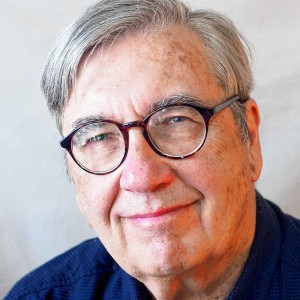 Over Easy: Marvels in the heavens, and in the yard
Over Easy: Marvels in the heavens, and in the yard 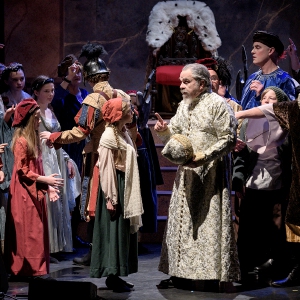 Amid financial difficulties, Lebanon-based Revels North cancels midwinter show
Amid financial difficulties, Lebanon-based Revels North cancels midwinter show  Art Notes: The Pilgrims to perform ‘last’ show Saturday in Hanover
Art Notes: The Pilgrims to perform ‘last’ show Saturday in Hanover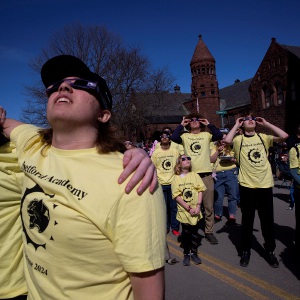 Upper Valley residents witness total eclipse
Upper Valley residents witness total eclipse
